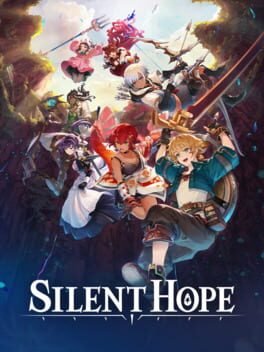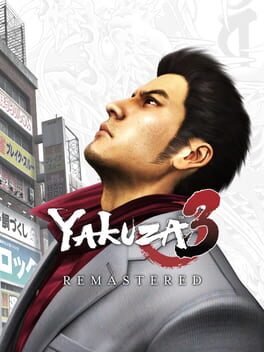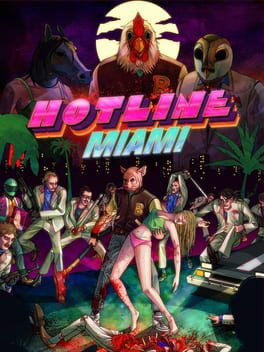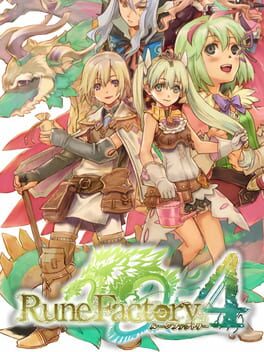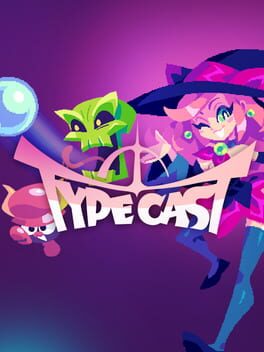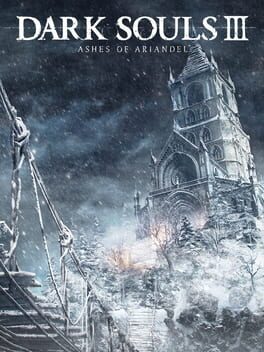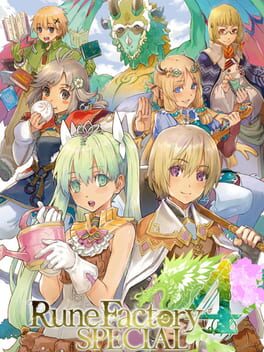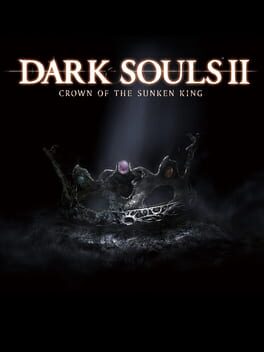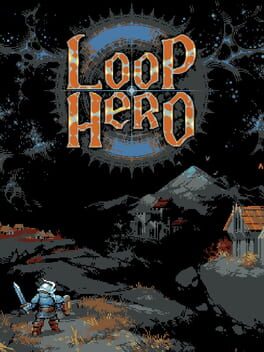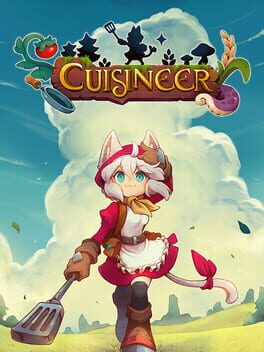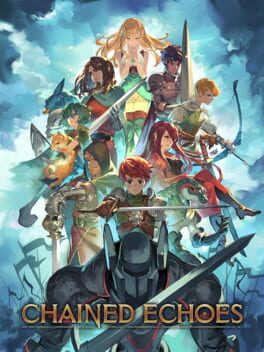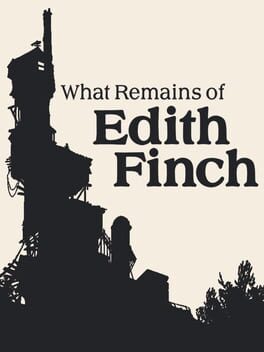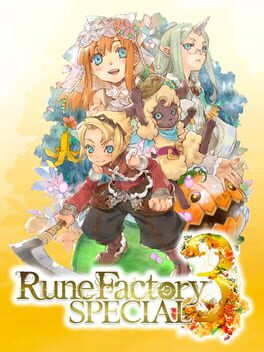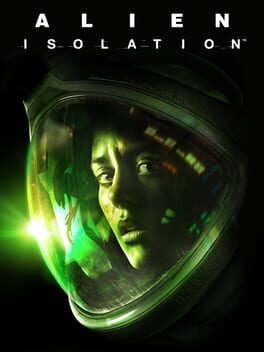Katsono
2023
Overall a fun game but it's being held back by numerous, truly numerous, flaws.
Silent Hope is a roguelike that alternates between sending you inside a long, continuous dungeons to kill monsters, gather materials and move forward and another section where you are managing resources at your base.
First of all, the base management is absolutely horrendous. During the dungeoning, you gather materials which will be used to craft weapons, pretty straightforward so far right? Except you need to process them into processed materials first, for example turning wood into lumber or plant something for it to grow, before you can use them. This also takes time, which only runs when you are dungeoning. So to use new materials and ingredients, you essentially need at least two runs which is a weird decision that I don't really understand and only serves to hinder your progress if you rush through the dungeons, which start very easy.
The loot system of the game isn't spared from this. With a diablo-like loot system, you're gonna get a lot of weapons or so you thought. They're crafting schemes which you need to actually craft at the base using your materials. Unfortunately, the variable differences between weapons are very minimal: their base attack value is almost the same per weapon type and one area in a dungeon will usually only have the same weapon type, until you progress enough to get better weapons. Ultimately, you just end up with a lot of copies of the same weapon cluttering your inventory, and the inventory and crafting interface in this game are pretty bad and unintuitive. Did I mention how bad the processing interface was? Because you'll be wasting a lot of time scrolling to get the material you want to process, interrupted by an animation the first time you do it after every dungeoning session and then you'll waste even more getting rid of needless weapon schemes and whatnot. There's no easy way to scroll and sort your stuff, it's all very tedious and involves a lot of micromanagement and repetition.
There's also cooking and... yeah, it's not really much better than the rest.
The story is fairly unimpressive and serviceable. Despite being a part of the Rune Factory series, it doesn't really develop onto anything so it might as well not be a spinoff. Aside from woolies and a few weapon/ingredients from the main series, you'll hardly recognise anything. The music is also fairly limited and gets repeated a lot during your playthroughs. On another hand, I was very surprised with the voice acting, especially of the king, which was very good, but there are few instances of dialogue in the game (excluding the constantly chattering princess, which thankfully can be disabled).
Dungeoning is where the game is fun but even so, it's pretty limited. Most monsters hardly flinch so a lot of the game involves running back and forth by using the dodge feature whenever your skills are recharging. The more you move forward, the less useful your basic attack seems to be and unfortunately your skills have at least 4-5 seconds of cooldown for the lucky ones, 10 for the unlucky caster which is in my opinion the worst class in the game because of this. You can end up waiting a lot depending on your playstyle, just because your skills have very long cooldown and you can at most have three of them. This also creates a dilemma where you either try to get easily spammable skills to be effective or you try to focus on a good combo (like caster seems to be build for) but you'll be AFK for a while after every burst of attacks.
Some characters also suffer from terrible flaws. Warrior for example has an attack where she spins her weapon and it's supposed to attract enemies to her, stunning them if they get hit enough. However, this skill flinches the enemies, sending them away from you and resulting in them not being attracted nor getting stunned. Another one of her attacks is a charge which pushes enemies away and is supposed to deal multiple hits as long as you keep running into an enemy. The unfortunate result is the physics of the game will often throw an enemies ABOVE your head and they won't get hit until the end of your charge. This kind of game breaking thing is fairly common and pretty annoying honestly, even more so when I really enjoyed the concept of those.
The dungeons stay fairly basic with a limited number of enemies that repeat themselves in slightly different shapes. Overall it's alright, but the repetitive nature of being forced into the same areas over and over because you died or you need to process materials or you need to level up your previous characters is pretty underwhelming, even more so knowing that you already have dozens of every material type, that you are not going to get a better weapon or anything out of it... There is no fast way to progress, especially in the lategame where floors can be extremely long and tedious to go through, without any indication of an exit. I honestly spent more time just running and dodging enemies because I had absolutely nothing to gain and it's much more efficient to progress to newer areas to progress.
Despite this, one last thing will eventually hold you back. You might assume that you can simply blast through the game with one character and equip better gear on the others, allowing them to catch up. You would be wrong, as levels heavily influence your character's strength despite this, you will therefore be forced to eventually go back an area or two and grind them.
I feel like this game would really have benefited from allowing more than three skills to be funnier to play. It also doesn't really play into its concept of constantly switching characters despite the boosts you get from doing so and the frequency of crystals, because they really want you to stay stuck in the same area and level up every character individually. Additionally, you'll only unlock the third and last class of every character one dungeon layer after beating the main story boss and oh boy, you'll need to grind your characters and repeat that one area with each of the seven characters.
I would add the completely astounding price of 40usd on release as yet another flaw but at least by now you can get the game at 20usd on sales. Which is still fairly expensive in my opinion, there are better and cheaper roguelites out there. Ultimately, if it hadn't been a Rune Factory spinoff I probably would not have ended up playing it.
Silent Hope is a roguelike that alternates between sending you inside a long, continuous dungeons to kill monsters, gather materials and move forward and another section where you are managing resources at your base.
First of all, the base management is absolutely horrendous. During the dungeoning, you gather materials which will be used to craft weapons, pretty straightforward so far right? Except you need to process them into processed materials first, for example turning wood into lumber or plant something for it to grow, before you can use them. This also takes time, which only runs when you are dungeoning. So to use new materials and ingredients, you essentially need at least two runs which is a weird decision that I don't really understand and only serves to hinder your progress if you rush through the dungeons, which start very easy.
The loot system of the game isn't spared from this. With a diablo-like loot system, you're gonna get a lot of weapons or so you thought. They're crafting schemes which you need to actually craft at the base using your materials. Unfortunately, the variable differences between weapons are very minimal: their base attack value is almost the same per weapon type and one area in a dungeon will usually only have the same weapon type, until you progress enough to get better weapons. Ultimately, you just end up with a lot of copies of the same weapon cluttering your inventory, and the inventory and crafting interface in this game are pretty bad and unintuitive. Did I mention how bad the processing interface was? Because you'll be wasting a lot of time scrolling to get the material you want to process, interrupted by an animation the first time you do it after every dungeoning session and then you'll waste even more getting rid of needless weapon schemes and whatnot. There's no easy way to scroll and sort your stuff, it's all very tedious and involves a lot of micromanagement and repetition.
There's also cooking and... yeah, it's not really much better than the rest.
The story is fairly unimpressive and serviceable. Despite being a part of the Rune Factory series, it doesn't really develop onto anything so it might as well not be a spinoff. Aside from woolies and a few weapon/ingredients from the main series, you'll hardly recognise anything. The music is also fairly limited and gets repeated a lot during your playthroughs. On another hand, I was very surprised with the voice acting, especially of the king, which was very good, but there are few instances of dialogue in the game (excluding the constantly chattering princess, which thankfully can be disabled).
Dungeoning is where the game is fun but even so, it's pretty limited. Most monsters hardly flinch so a lot of the game involves running back and forth by using the dodge feature whenever your skills are recharging. The more you move forward, the less useful your basic attack seems to be and unfortunately your skills have at least 4-5 seconds of cooldown for the lucky ones, 10 for the unlucky caster which is in my opinion the worst class in the game because of this. You can end up waiting a lot depending on your playstyle, just because your skills have very long cooldown and you can at most have three of them. This also creates a dilemma where you either try to get easily spammable skills to be effective or you try to focus on a good combo (like caster seems to be build for) but you'll be AFK for a while after every burst of attacks.
Some characters also suffer from terrible flaws. Warrior for example has an attack where she spins her weapon and it's supposed to attract enemies to her, stunning them if they get hit enough. However, this skill flinches the enemies, sending them away from you and resulting in them not being attracted nor getting stunned. Another one of her attacks is a charge which pushes enemies away and is supposed to deal multiple hits as long as you keep running into an enemy. The unfortunate result is the physics of the game will often throw an enemies ABOVE your head and they won't get hit until the end of your charge. This kind of game breaking thing is fairly common and pretty annoying honestly, even more so when I really enjoyed the concept of those.
The dungeons stay fairly basic with a limited number of enemies that repeat themselves in slightly different shapes. Overall it's alright, but the repetitive nature of being forced into the same areas over and over because you died or you need to process materials or you need to level up your previous characters is pretty underwhelming, even more so knowing that you already have dozens of every material type, that you are not going to get a better weapon or anything out of it... There is no fast way to progress, especially in the lategame where floors can be extremely long and tedious to go through, without any indication of an exit. I honestly spent more time just running and dodging enemies because I had absolutely nothing to gain and it's much more efficient to progress to newer areas to progress.
Despite this, one last thing will eventually hold you back. You might assume that you can simply blast through the game with one character and equip better gear on the others, allowing them to catch up. You would be wrong, as levels heavily influence your character's strength despite this, you will therefore be forced to eventually go back an area or two and grind them.
I feel like this game would really have benefited from allowing more than three skills to be funnier to play. It also doesn't really play into its concept of constantly switching characters despite the boosts you get from doing so and the frequency of crystals, because they really want you to stay stuck in the same area and level up every character individually. Additionally, you'll only unlock the third and last class of every character one dungeon layer after beating the main story boss and oh boy, you'll need to grind your characters and repeat that one area with each of the seven characters.
I would add the completely astounding price of 40usd on release as yet another flaw but at least by now you can get the game at 20usd on sales. Which is still fairly expensive in my opinion, there are better and cheaper roguelites out there. Ultimately, if it hadn't been a Rune Factory spinoff I probably would not have ended up playing it.
2018
A controversial title but I liked it. The game is much slower paced and is set in a different location, but I really enjoyed the slice of life approach.
Unlike Kiwami 1 and 2 there's no complete remake, but the game feels modern enough. I actually like this combat system much more than the modern dragon engine, the only flaw is that enemies will constantly block you. Some of them will also dodge non-stop with i-frames which is absolutely horrendous, otherwise this would be one of my favourite Yakuza games.
Unlike Kiwami 1 and 2 there's no complete remake, but the game feels modern enough. I actually like this combat system much more than the modern dragon engine, the only flaw is that enemies will constantly block you. Some of them will also dodge non-stop with i-frames which is absolutely horrendous, otherwise this would be one of my favourite Yakuza games.
2012
Overall a good concept but I didn't really like the execution. The game is extremely frustrating for many reasons, such as :
- the terrible aiming and how precise you need to be to hit with guns
- hell, even melee weapons sometimes, why can't the character redirect himself with the left joystick like it does in the non combat areas???
- janky IA that randomly doesn't notice shots
- a screen that easily becomes unreadable AND enemies constantly out of your sight
- enemies that are so similar you can hardly tell which weapon they're holding
- the instant reaction speed of enemies and their 100% precise aiming
- the disastrous boss design (thankfully there's only two of them)
It feels very cheap to die when it's so easy for it to happen and how things are outside of your control. It also doesn't encourage me to learn and better myself at the game, I'm done playing it once.
The story part feels pretty poor, while it's interesting the execution is also mediocre. After playing Katana Zero, I'd say that game is a straight up upgrade in every concept that Hotline Miami wanted to execute.
- the terrible aiming and how precise you need to be to hit with guns
- hell, even melee weapons sometimes, why can't the character redirect himself with the left joystick like it does in the non combat areas???
- janky IA that randomly doesn't notice shots
- a screen that easily becomes unreadable AND enemies constantly out of your sight
- enemies that are so similar you can hardly tell which weapon they're holding
- the instant reaction speed of enemies and their 100% precise aiming
- the disastrous boss design (thankfully there's only two of them)
It feels very cheap to die when it's so easy for it to happen and how things are outside of your control. It also doesn't encourage me to learn and better myself at the game, I'm done playing it once.
The story part feels pretty poor, while it's interesting the execution is also mediocre. After playing Katana Zero, I'd say that game is a straight up upgrade in every concept that Hotline Miami wanted to execute.
2012
Note : RF4S is a slightly better version especially because it's not on a 3ds, but if you actually want to play on a 3ds then this version is perfectly playable. If you can, pick a ROM with Japanese dubs.
There are a lot of times I look at farming games and think they look painfully bland. You position yourself in front of a farming tile, you press a button and watch a one second animation during which you do nothing, something happens -either you plant, you till or gather something-, you move forward in a janky manner and do the same thing in the next tile of your grid based farm.
Then you have Rune Factory 4. When you water your plants, you have to move along your land to progressively water it. You can press the tilling button repeatedly to till forward. You can even charge your tools like you would charge weapon. It FEELS like a game, it feels GOOD. Even when you pick up items, there's this positive feedback because there's a weight to the item, it's not just a long animation where your character picks up something and you're stuck watching, unable to move. Hell you can even pick up multiple items at once and stack then on top of your character. All of that is what makes the farming in this game really good to play.
When I first started this game, I thought it would be an average mix of anime tropes, maybe some JRPG elements and farming. I wasn't wrong but the game also delivered so much more. Sure, the story and the characters are very tropey but at the same time, the game makes such a smart use of dialogue that I've never felt like a game was this alive. The amount of dialogue is insane and even after a hundred hours of playing, you'll still have new things to read. Every day, every character says something new. They also talk to each other. There are also random events in town involving them and there are multiple dozens of them! Quantity over quality is not something I usually appreciate but RF4 is perhaps the only game that manages to deliver something out of that. The end result is that the tropey characters have a lot of nuance, personality and that ultimately I learned to love them and to not mind living alongside them. This goes to the point that I just cannot stand most similar games because none of them offers one tenth of RF4's writing. I've really seen no other game with such an organic town and characters and it doesn't help in making me enjoy other farming games.
RF4 is a great farming game, a great slice of life game and it's also a great adventure and RPG. Not only does it combine aspects of management and adventuring rather well, but the game also has a lot to offer. Crafting and cooking are core mechanics and the crafting in this series is perhaps the most in-depth I have ever seen in any game, with an enormous amount of freedom given to the player when it comes to customisation. You can use any item in the game to craft and almost all of them have a specific effect. You want to make a weapon with every single status effect? You can. A giant spear bigger than the screen? You can!!!
The freedom given to the player is a huge part of why this game feels fun. There are tons of ways to break the game, for example you can throw bad food at enemies and it'll affect them the same way it affects you. Have a rotten food which deals -50% HP? Throw it at a boss and see what happens, the developers did not prevent you from doing so! Every time you find such a thing, it feels rewarding and at the same time not out of place. Ultimately the game is a lot about minmaxing, grinding and optimizing things but in a fun and stressless ways. It's not a hard or frustrating game and yet it still is quite fun to break.
Despite its limitations, the game also offer a great amount of exploration in the style of ALTTP dungeons, with every screen usually being a separate map area. The world is huge and there are a lot of dungeons, enemies, items to be collected... Did I mention you can capture every single enemy and use them as fighting pets, mounts or have them work in your farm? And if you don't like them, then bring up to two villagers alongside you in battle, you can even equip them as you wish!
The game has a ton of such systems and you never get bored. Grinding is a core mechanic and everything in the game has stats, from walking to sleeping to taking a bath. Sure they don't amount to much but it's still great hearing the skill up jingle every time you level up your walking.
Perhaps what I like the most about the game is its ergonomics. Teleport home whenever you want. Need something? Press L1/LB to open your quick menu which allows access to your ENTIRE INVENTORY within seconds, seriously no other game can rival this. It feels like you don't waste a single second and everything is as optimized as it can get. It feels... great! Truly, one of my favourite games of all times.
There are a lot of times I look at farming games and think they look painfully bland. You position yourself in front of a farming tile, you press a button and watch a one second animation during which you do nothing, something happens -either you plant, you till or gather something-, you move forward in a janky manner and do the same thing in the next tile of your grid based farm.
Then you have Rune Factory 4. When you water your plants, you have to move along your land to progressively water it. You can press the tilling button repeatedly to till forward. You can even charge your tools like you would charge weapon. It FEELS like a game, it feels GOOD. Even when you pick up items, there's this positive feedback because there's a weight to the item, it's not just a long animation where your character picks up something and you're stuck watching, unable to move. Hell you can even pick up multiple items at once and stack then on top of your character. All of that is what makes the farming in this game really good to play.
When I first started this game, I thought it would be an average mix of anime tropes, maybe some JRPG elements and farming. I wasn't wrong but the game also delivered so much more. Sure, the story and the characters are very tropey but at the same time, the game makes such a smart use of dialogue that I've never felt like a game was this alive. The amount of dialogue is insane and even after a hundred hours of playing, you'll still have new things to read. Every day, every character says something new. They also talk to each other. There are also random events in town involving them and there are multiple dozens of them! Quantity over quality is not something I usually appreciate but RF4 is perhaps the only game that manages to deliver something out of that. The end result is that the tropey characters have a lot of nuance, personality and that ultimately I learned to love them and to not mind living alongside them. This goes to the point that I just cannot stand most similar games because none of them offers one tenth of RF4's writing. I've really seen no other game with such an organic town and characters and it doesn't help in making me enjoy other farming games.
RF4 is a great farming game, a great slice of life game and it's also a great adventure and RPG. Not only does it combine aspects of management and adventuring rather well, but the game also has a lot to offer. Crafting and cooking are core mechanics and the crafting in this series is perhaps the most in-depth I have ever seen in any game, with an enormous amount of freedom given to the player when it comes to customisation. You can use any item in the game to craft and almost all of them have a specific effect. You want to make a weapon with every single status effect? You can. A giant spear bigger than the screen? You can!!!
The freedom given to the player is a huge part of why this game feels fun. There are tons of ways to break the game, for example you can throw bad food at enemies and it'll affect them the same way it affects you. Have a rotten food which deals -50% HP? Throw it at a boss and see what happens, the developers did not prevent you from doing so! Every time you find such a thing, it feels rewarding and at the same time not out of place. Ultimately the game is a lot about minmaxing, grinding and optimizing things but in a fun and stressless ways. It's not a hard or frustrating game and yet it still is quite fun to break.
Despite its limitations, the game also offer a great amount of exploration in the style of ALTTP dungeons, with every screen usually being a separate map area. The world is huge and there are a lot of dungeons, enemies, items to be collected... Did I mention you can capture every single enemy and use them as fighting pets, mounts or have them work in your farm? And if you don't like them, then bring up to two villagers alongside you in battle, you can even equip them as you wish!
The game has a ton of such systems and you never get bored. Grinding is a core mechanic and everything in the game has stats, from walking to sleeping to taking a bath. Sure they don't amount to much but it's still great hearing the skill up jingle every time you level up your walking.
Perhaps what I like the most about the game is its ergonomics. Teleport home whenever you want. Need something? Press L1/LB to open your quick menu which allows access to your ENTIRE INVENTORY within seconds, seriously no other game can rival this. It feels like you don't waste a single second and everything is as optimized as it can get. It feels... great! Truly, one of my favourite games of all times.
2023
Typecast is a pretty unique game and it can be quite addicting, with a high skill ceiling at that. You control your mouse cursor as you have to avoid ennemies which you can kill by hitting the right keyboard key if they're within your attack range, and from then on it gets more complicated.
The concept is surprisingly fun and really allows the player to try and progress. The leaderboard is a really nice concept I love seeing in a game like this, it really pushes you forward and encourages you to beat your score. The only other game I played that did this was Killbug.
The presentation is also really nice, from the visuals to the sound effects it's very pleasing. I especially like the main menues and the voice over which reads some of the options like START!
The concept is surprisingly fun and really allows the player to try and progress. The leaderboard is a really nice concept I love seeing in a game like this, it really pushes you forward and encourages you to beat your score. The only other game I played that did this was Killbug.
The presentation is also really nice, from the visuals to the sound effects it's very pleasing. I especially like the main menues and the voice over which reads some of the options like START!
999 seems to often be recommended as some kind of entrypoint into visual novels and maybe point and click, as a mix of both, somewhat similar to Ace Attorney. Hell, it has ladder jokes so you can see the common points.
It’s also an escape game… game. You are locked in places and you’ve got to figure out where to go. The game alternates between these escape puzzles and story sections where the party will progress inside the boat, looking for an exit.
The atmosphere is spot-on
You are locked inside a big boat and it’s gonna sink. The environments are modelized in very basic 3D but this works in the game’s favour because the poor 3D models make everything feel cold, alien and eerie. Similarly, the sound design is really nice. The sounds of the interface also have that eerie feel and the soundtrack manages to convey tension throughout the game.
The story perfectly captivates the vibe of being locked inside a mysterious location which you get to know through your progress in the game and your multiple runs, revisiting locations as the game centres around a few spots. It will introduce future locations early on too so you can get used to it: see that door? It’s locked, but now you know there’s a mysterious door with a mysterious symbol on it.
The puzzles are satisfying but not exceptional
999 is a hybrid between two genres and I don’t think it excels at puzzles. However, they are decent and provide a good amount of fun. I think that a lot of the puzzles are too linear and the solution comes up way too naturally: you usually can only do one thing at the beginning and you’ll easily know what to do next, until the end of the puzzle. For example, you do not get to pick up a lot of items that you’ll use later, especially because of the game’s nature where every puzzle is isolated instead of being a whole
You don’t get to visit the ship yourself but through the story, this is a pretty heavy limit and I think it does not play in the game’s favour as I would actually have loved having the freedom to do so. Linearity aside, it’s just too easy to guess what to do and the characters also give a lot of hints. Honestly, I think most hints sounded silly because the puzzles are simple enough yet you have to read all these talks where the characters are trying to figure out the solution but where at the same time the writing is trying to hide the actual answer.
A story too constrained into a single ending:
A lot of visual novels have multiple paths you can take yet ultimately a single “true” one. 999 is no exception and it comes with the flaws of the genre. The alternative possibilities in this story do not offer much and the main use is to have the player experience multiple attempts at solving the story. This ends up quite repetitive because the information you acquire through the alternative routes is eventually used in the true ending and thus had to be explained again, in a clumsy and redundant manner mostly (although there is a neat gimmick about it too).
Another problem 999 has is that it somewhat lacks a story for a good portion of the game. Because of the way the plot is designed, there aren’t many secrets to be revealed or progress to be made that wouldn’t give away the entire plot. Thus, the plot is heavily concentrated into the true ending of the game. This route is actually quite long and took me about a third of my entire playtime of the game, compared to other ending branches which would be maybe 30 minutes long.
Because the story is so concentrated, the feeling of progress is lessened and the incentives to move forward are limited. There are only little details that matter in most routes and nothing big to retain from them. You do one route, reach a dead end with no explanation of why you failed and you just got to try another path. Thankfully, the PC port has a flowchart allowing you to go back to any point in the story instead of restarting everything, this makes it very convenient to play through the entire content and I am not convinced at all by those who criticise this system.
The reason why I believe the flowchart is essential is that there’s no impact to the choices you make and your progress is up to luck. Almost all of your choices are about which door to go through and you wouldn’t know what happen ahead of time. The other choices are choices that appear pretty inconsequential yet they are required to reach two of the endings. I thought they were really bad. At one point, a character asks a maths question and I had to answer wrong to unlock a certain path: there’s no way I would guess it without indications.
That aside, I did actually enjoy the story and I think they were some very touching moments.
Pseudoscience and fun facts, I say no:
One last thing I strongly dislike about this game is how pedantic it can get. To explain this, I will try to make up a situation that didn’t happen in the game but in a way that would happen in the game:
The group finds a nuclear bomb with a timer counting down. They panic but one character manages to keep their calm and starts explaining, “this is a nuclear bomb, do you know how nuclear science has allowed us to make a nuclear bomb? It was discovered by…”. After a lengthy explanation of how nuclear bombs work, another character will reveal their expertise in this science and start adding some precisions, “hey, this is actually a 1 megaton bomb, the radius of explosion would be around 10 km. If this exploded, we’re all dead!”. After this, we finally get to see the characters do something and how it’s gonna matter in the plot.
Quite a lot of the time, the story is interrupted by this kind of needless jargon you would hear from a high schooler trying to tell you cool science facts, if not pseudoscience. Yeah, the game also has a lot of pseudoscience and because of the way it was introduced I really wasn’t convinced. Not only is the introduction improper but the fact that all of the characters turn into some weirdos with random fun fact encyclopaedias in their head is just absurd to me.
Overall I did enjoy the game and appreciated it. It’s not the VN nor puzzle game I liked the most but I still think it has its merits.
It’s also an escape game… game. You are locked in places and you’ve got to figure out where to go. The game alternates between these escape puzzles and story sections where the party will progress inside the boat, looking for an exit.
The atmosphere is spot-on
You are locked inside a big boat and it’s gonna sink. The environments are modelized in very basic 3D but this works in the game’s favour because the poor 3D models make everything feel cold, alien and eerie. Similarly, the sound design is really nice. The sounds of the interface also have that eerie feel and the soundtrack manages to convey tension throughout the game.
The story perfectly captivates the vibe of being locked inside a mysterious location which you get to know through your progress in the game and your multiple runs, revisiting locations as the game centres around a few spots. It will introduce future locations early on too so you can get used to it: see that door? It’s locked, but now you know there’s a mysterious door with a mysterious symbol on it.
The puzzles are satisfying but not exceptional
999 is a hybrid between two genres and I don’t think it excels at puzzles. However, they are decent and provide a good amount of fun. I think that a lot of the puzzles are too linear and the solution comes up way too naturally: you usually can only do one thing at the beginning and you’ll easily know what to do next, until the end of the puzzle. For example, you do not get to pick up a lot of items that you’ll use later, especially because of the game’s nature where every puzzle is isolated instead of being a whole
You don’t get to visit the ship yourself but through the story, this is a pretty heavy limit and I think it does not play in the game’s favour as I would actually have loved having the freedom to do so. Linearity aside, it’s just too easy to guess what to do and the characters also give a lot of hints. Honestly, I think most hints sounded silly because the puzzles are simple enough yet you have to read all these talks where the characters are trying to figure out the solution but where at the same time the writing is trying to hide the actual answer.
A story too constrained into a single ending:
A lot of visual novels have multiple paths you can take yet ultimately a single “true” one. 999 is no exception and it comes with the flaws of the genre. The alternative possibilities in this story do not offer much and the main use is to have the player experience multiple attempts at solving the story. This ends up quite repetitive because the information you acquire through the alternative routes is eventually used in the true ending and thus had to be explained again, in a clumsy and redundant manner mostly (although there is a neat gimmick about it too).
Another problem 999 has is that it somewhat lacks a story for a good portion of the game. Because of the way the plot is designed, there aren’t many secrets to be revealed or progress to be made that wouldn’t give away the entire plot. Thus, the plot is heavily concentrated into the true ending of the game. This route is actually quite long and took me about a third of my entire playtime of the game, compared to other ending branches which would be maybe 30 minutes long.
Because the story is so concentrated, the feeling of progress is lessened and the incentives to move forward are limited. There are only little details that matter in most routes and nothing big to retain from them. You do one route, reach a dead end with no explanation of why you failed and you just got to try another path. Thankfully, the PC port has a flowchart allowing you to go back to any point in the story instead of restarting everything, this makes it very convenient to play through the entire content and I am not convinced at all by those who criticise this system.
The reason why I believe the flowchart is essential is that there’s no impact to the choices you make and your progress is up to luck. Almost all of your choices are about which door to go through and you wouldn’t know what happen ahead of time. The other choices are choices that appear pretty inconsequential yet they are required to reach two of the endings. I thought they were really bad. At one point, a character asks a maths question and I had to answer wrong to unlock a certain path: there’s no way I would guess it without indications.
That aside, I did actually enjoy the story and I think they were some very touching moments.
Pseudoscience and fun facts, I say no:
One last thing I strongly dislike about this game is how pedantic it can get. To explain this, I will try to make up a situation that didn’t happen in the game but in a way that would happen in the game:
The group finds a nuclear bomb with a timer counting down. They panic but one character manages to keep their calm and starts explaining, “this is a nuclear bomb, do you know how nuclear science has allowed us to make a nuclear bomb? It was discovered by…”. After a lengthy explanation of how nuclear bombs work, another character will reveal their expertise in this science and start adding some precisions, “hey, this is actually a 1 megaton bomb, the radius of explosion would be around 10 km. If this exploded, we’re all dead!”. After this, we finally get to see the characters do something and how it’s gonna matter in the plot.
Quite a lot of the time, the story is interrupted by this kind of needless jargon you would hear from a high schooler trying to tell you cool science facts, if not pseudoscience. Yeah, the game also has a lot of pseudoscience and because of the way it was introduced I really wasn’t convinced. Not only is the introduction improper but the fact that all of the characters turn into some weirdos with random fun fact encyclopaedias in their head is just absurd to me.
Overall I did enjoy the game and appreciated it. It’s not the VN nor puzzle game I liked the most but I still think it has its merits.
Once again, beautiful snowy areas. I'm not a huge fan of its large open areas which feel too big and have randomly scattered enemies with nothing really interesting in-between, but they do look nice and the DLC also has one of the greatest bosses in the series.
Arguably, this DLC also has one of the worst bosses of the game and that's two bosses in total. It's a small package.
Arguably, this DLC also has one of the worst bosses of the game and that's two bosses in total. It's a small package.
This version is pretty much the same as the original, so you can check my review for it here.
Having the game on a bigger screen feels really nice and the game has been adapted well to work without the 3ds touch screen. There are some improvements like a few RNG events not being random any more.
On another hand, the upscaling is pretty disappointing and they did a much better job with RF3S. It's a shame that the best game in the series will not get such a treatment because this remaster came first.
We can also finally use Japanese dubs without hacking a ROM and using a custom 3ds firmware so that was nice.
Having the game on a bigger screen feels really nice and the game has been adapted well to work without the 3ds touch screen. There are some improvements like a few RNG events not being random any more.
On another hand, the upscaling is pretty disappointing and they did a much better job with RF3S. It's a shame that the best game in the series will not get such a treatment because this remaster came first.
We can also finally use Japanese dubs without hacking a ROM and using a custom 3ds firmware so that was nice.
The DLC is creative with a unique area that has multiple riddles and doors to unlock, somewhat similar to a Zelda dungeon, but that's pretty much it. It is frustrating with tough enemies, some of them even having an invincibility gimmick, and unlike the others it doesn't really have memorable bosses. The dragon was really forgettable, in my opinion.
2021
It's a fun game and a good concept but it overstays its welcome without adding anything new. The game up to chapter 3 is alright but the last chapter is too much of a grind.
This game has a very pleasant atmosphere about nothingness, which I'm surprised isn't mentionned more often. While the story is very minimalistic, the few moments of it are pleasant to go through. The dialogue is well written and the pixel portraits are awesome.
The game's main flaw is how quickly it becomes repetitive because everything major is unlocked early on. It's also easy to discover most possible combinations of cards, so the game gets stale. I honestly feel like the game just... stops. You've discovered everything, you HAVE finished it. Sure, there's a few cards requiring a lot of grind to unlock but you have seen 95% of the content, you have unlocked all classes and base facilities, you are at the last chapter and the next ten or twenty hours are a repeat of the exact same thing. At that point, the game feels incomplete, the gameplay loop starts falling apart.
It doesn't help that the game is very RNG oriented and there's little skill you can develop overtime and there aren't that many strategies either. Perhaps the worst part is the extremely punishing death penalty which slows down your progress, making it a serious grind to beat the final level.
The game is also so slow! Seriously, the maximum speed needs to be raised way higher. Too much of the playtime is just wasted looking at the screen while you can do nothing and there isn't even much in the way of animations to look at.
This game has a very pleasant atmosphere about nothingness, which I'm surprised isn't mentionned more often. While the story is very minimalistic, the few moments of it are pleasant to go through. The dialogue is well written and the pixel portraits are awesome.
The game's main flaw is how quickly it becomes repetitive because everything major is unlocked early on. It's also easy to discover most possible combinations of cards, so the game gets stale. I honestly feel like the game just... stops. You've discovered everything, you HAVE finished it. Sure, there's a few cards requiring a lot of grind to unlock but you have seen 95% of the content, you have unlocked all classes and base facilities, you are at the last chapter and the next ten or twenty hours are a repeat of the exact same thing. At that point, the game feels incomplete, the gameplay loop starts falling apart.
It doesn't help that the game is very RNG oriented and there's little skill you can develop overtime and there aren't that many strategies either. Perhaps the worst part is the extremely punishing death penalty which slows down your progress, making it a serious grind to beat the final level.
The game is also so slow! Seriously, the maximum speed needs to be raised way higher. Too much of the playtime is just wasted looking at the screen while you can do nothing and there isn't even much in the way of animations to look at.
2023
Cuisineer is a fun game that mixes elements from a few different other games. In this game, you're a cook that goes hunting for food to serve it to your customers. The restaurant management reminds me a lot of moonlighter, whereas the exploration part is similar to a roguelite version of Rune Factory.
The game is pretty fun but it's honestly flawed all over the place and there's a lot that could be improved. The balance of the game especially doesn't make any sense at all. I just can't understand some things, like why the most basic tutorial messages only appear at Day TWENTY (and that’s only first the very first one) to tell you useful info that should have been explained right away and which you probably figured out on your own in the meantime. It's the same for everything in the game, from some systems like weapon upgrading being seemingly useless to the amount of resources required being too much or too little, to the difficulty of the restaurant management... The game is still fun though but it would be a top contender of the genre for me if it was more focused.
The start is extremely slow with a lot of things left unexplained until way too late and systems that sort of discourage experimentation. For example, brewing costs 500 coins and there's no explanation for how it works until you try it out a few times to understand it. It's actually a pretty cool system but it's too expensive (the devs lowered the cost to 100 now thankfully), it takes your weapon away for one day and you don't have any idea what the weapon mods do either, nor are you informed that brewing will lock one slot forever. It also takes quite a fortune to acquire your first weapons.
The game made me actually believe I'd quickly be given one equipment of each type, because every new area gives you a new weapon and paying the debt gives you one piece of armour. But guess what? It took me over ten hours to pay the second debt and get... basic boots, something I already bought and dropped in dungeons for a good ten hours as well. Eventually you get a lot of weapons just from running the dungeon but they're mostly useless and the way the equipment mods work, I find that nearly every piece of equipment I obtain is unneeded. You can't even sell them so it really feels like cumbersome junk, especially considering that they take inventory slots.
This creates a displeasing gameplay loop where you don't even want to go any further than needed in dungeons. Why go beat a boss when my inventory is full? I only get the same materials as normal monsters and random equipment which is no better than checking the daily sales of the smith. I don't even get money and can't sell them, thus there's never any incentive to beat a boss. All you get is an achievement for beating them once and one quest requires you to beat floor 6 of the first dungeon, that's it! This part of the game could really be improved.
As for dungeoning itself, it's the best part of the game. The combat is solid and the maps, albeit a bit repetitive in patterns you can start to recognise (the dungeons are essentially a random arrangement of pre-made rooms) are beautiful and fun. Still, there are once again many flaws. My biggest gripe is probably how the cooldown of special attacks is so long, thus making the combat pretty monotonous as you can only spam the same basic attacks for most of the time. It would have also been a great addition to be able to switch between the two weapons you can equip, instead of only having one main weapon and the second slot being used for the special attack. A few more special attacks would have really made this game into a very awesome dungeon crawler.
That aside, the combat is tight there's no denying it. A lot of the bosses are fun and special mention to the second boss of the snow area which is straight up awesome. It's too bad the game doesn't really reward you for beating them. On another hand, the mobs can get annoying sometimes: the rice sprites are just about everywhere which really gets tedious at some point, especially considering how 1) they're so small you can hardly track them 2) they get hyper armour from their buffs and thus can easily destroy your crowd control. Hell, they can literally become immortal if two rice priests are buffing them and it's hard to notice. Oftentimes the combat can get really messy with many enemies and the screen being unreadable and this is where a few more special attacks would have shined.
As for the restaurant, it is also very unbalanced. First of all, running the restaurant an entire day (which is pretty much required) is twenty minutes!!! This is insane compared to a game like Dave the diver where this part of the game is very short (and also, unlike here, very involved with the player being actively tasked to do things). It's long and mostly very boring, especially at the beginning. For most of my ten hours of play, I never had enough customers to fill the restaurant and be busy and now that I have upgraded it to the maximum level and almost gotten max reputation, only now do I get to actively play the restaurant. This took me about 15 hours!!! And this is only during three times of the day (lunch, afternoon tea and dinner) during which customers are increased, the rest of the day is still very calm with perhaps two to three customers at once. This part is very obviously flawed.
The restaurant gameplay is very simple and could be improved too, but overall it's pretty good for what it is, if only you had enough customers. It doesn't require much thinking and doesn't offer much in the way of management but it's still fun to run and watch. Still, a game like Dave the diver really shows a lot of things that Cuisineer could have taken inspiration from. There's also a tight balance between dungeoning to get resources and running the restaurant which... also is pretty messy. Throughout the whole game I had way too much flour and rice (they're everywhere...) and I was mostly fine with most ingredients, but some of them like the pork and beef meat as well as cheese are extremely difficult to obtain because the enemies dropping them only appear in specific areas and are rare. Yet they end up being the most prized ingredients for your recipes and endgame recipes can even use five pieces of meat at once! One dungeon run would give me about twenty pieces of the ingredient I needed!!!
Finally, while the game introduces itself like a farming sim with a clock, a town with villagers to talk to… All of that aspect is extremely superficial. The dialogue is extremely uninteresting be it optional dialogues or the main quest which resumes itself to “pay your debt”. The villagers don’t react to anything you do, not even beating bosses for example and every side quest is structured the same way where they give you a random situation requiring you to find them an item and then explain what’s great about the recipes they’re giving you, but it doesn’t feel very convincing to read that part either and the repeated structure just gets previsible and boring, very fast. There’s very little to do in town other than buying things and completing your quests. There are birthdays, but it seems only two people a month (so eight in total) get to have a birthday out of all villagers and having them give you gifts instead of you doing it seems like a convenient way that the developers scrapped a planned social aspect. As for the clock, it really doesn’t matter : there’s little point to only running the restaurant for half a day and it doesn’t matter any more when you go dungeoning, because you get an unlimited amount of time and come back at 11pm. The clock could have been more useful if for example your dungeoning time was limited or you could come back and forth, for example dungeoning during the calm morning and coming back for the lunch rush. Once again, I think Dave the diver figured out a great way to handle this with days being separated into multiple parts and getting to do one action per part. Here, the clock is essentially the countdown until you close your restaurant.
The game is pretty fun but it's honestly flawed all over the place and there's a lot that could be improved. The balance of the game especially doesn't make any sense at all. I just can't understand some things, like why the most basic tutorial messages only appear at Day TWENTY (and that’s only first the very first one) to tell you useful info that should have been explained right away and which you probably figured out on your own in the meantime. It's the same for everything in the game, from some systems like weapon upgrading being seemingly useless to the amount of resources required being too much or too little, to the difficulty of the restaurant management... The game is still fun though but it would be a top contender of the genre for me if it was more focused.
The start is extremely slow with a lot of things left unexplained until way too late and systems that sort of discourage experimentation. For example, brewing costs 500 coins and there's no explanation for how it works until you try it out a few times to understand it. It's actually a pretty cool system but it's too expensive (the devs lowered the cost to 100 now thankfully), it takes your weapon away for one day and you don't have any idea what the weapon mods do either, nor are you informed that brewing will lock one slot forever. It also takes quite a fortune to acquire your first weapons.
The game made me actually believe I'd quickly be given one equipment of each type, because every new area gives you a new weapon and paying the debt gives you one piece of armour. But guess what? It took me over ten hours to pay the second debt and get... basic boots, something I already bought and dropped in dungeons for a good ten hours as well. Eventually you get a lot of weapons just from running the dungeon but they're mostly useless and the way the equipment mods work, I find that nearly every piece of equipment I obtain is unneeded. You can't even sell them so it really feels like cumbersome junk, especially considering that they take inventory slots.
This creates a displeasing gameplay loop where you don't even want to go any further than needed in dungeons. Why go beat a boss when my inventory is full? I only get the same materials as normal monsters and random equipment which is no better than checking the daily sales of the smith. I don't even get money and can't sell them, thus there's never any incentive to beat a boss. All you get is an achievement for beating them once and one quest requires you to beat floor 6 of the first dungeon, that's it! This part of the game could really be improved.
As for dungeoning itself, it's the best part of the game. The combat is solid and the maps, albeit a bit repetitive in patterns you can start to recognise (the dungeons are essentially a random arrangement of pre-made rooms) are beautiful and fun. Still, there are once again many flaws. My biggest gripe is probably how the cooldown of special attacks is so long, thus making the combat pretty monotonous as you can only spam the same basic attacks for most of the time. It would have also been a great addition to be able to switch between the two weapons you can equip, instead of only having one main weapon and the second slot being used for the special attack. A few more special attacks would have really made this game into a very awesome dungeon crawler.
That aside, the combat is tight there's no denying it. A lot of the bosses are fun and special mention to the second boss of the snow area which is straight up awesome. It's too bad the game doesn't really reward you for beating them. On another hand, the mobs can get annoying sometimes: the rice sprites are just about everywhere which really gets tedious at some point, especially considering how 1) they're so small you can hardly track them 2) they get hyper armour from their buffs and thus can easily destroy your crowd control. Hell, they can literally become immortal if two rice priests are buffing them and it's hard to notice. Oftentimes the combat can get really messy with many enemies and the screen being unreadable and this is where a few more special attacks would have shined.
As for the restaurant, it is also very unbalanced. First of all, running the restaurant an entire day (which is pretty much required) is twenty minutes!!! This is insane compared to a game like Dave the diver where this part of the game is very short (and also, unlike here, very involved with the player being actively tasked to do things). It's long and mostly very boring, especially at the beginning. For most of my ten hours of play, I never had enough customers to fill the restaurant and be busy and now that I have upgraded it to the maximum level and almost gotten max reputation, only now do I get to actively play the restaurant. This took me about 15 hours!!! And this is only during three times of the day (lunch, afternoon tea and dinner) during which customers are increased, the rest of the day is still very calm with perhaps two to three customers at once. This part is very obviously flawed.
The restaurant gameplay is very simple and could be improved too, but overall it's pretty good for what it is, if only you had enough customers. It doesn't require much thinking and doesn't offer much in the way of management but it's still fun to run and watch. Still, a game like Dave the diver really shows a lot of things that Cuisineer could have taken inspiration from. There's also a tight balance between dungeoning to get resources and running the restaurant which... also is pretty messy. Throughout the whole game I had way too much flour and rice (they're everywhere...) and I was mostly fine with most ingredients, but some of them like the pork and beef meat as well as cheese are extremely difficult to obtain because the enemies dropping them only appear in specific areas and are rare. Yet they end up being the most prized ingredients for your recipes and endgame recipes can even use five pieces of meat at once! One dungeon run would give me about twenty pieces of the ingredient I needed!!!
Finally, while the game introduces itself like a farming sim with a clock, a town with villagers to talk to… All of that aspect is extremely superficial. The dialogue is extremely uninteresting be it optional dialogues or the main quest which resumes itself to “pay your debt”. The villagers don’t react to anything you do, not even beating bosses for example and every side quest is structured the same way where they give you a random situation requiring you to find them an item and then explain what’s great about the recipes they’re giving you, but it doesn’t feel very convincing to read that part either and the repeated structure just gets previsible and boring, very fast. There’s very little to do in town other than buying things and completing your quests. There are birthdays, but it seems only two people a month (so eight in total) get to have a birthday out of all villagers and having them give you gifts instead of you doing it seems like a convenient way that the developers scrapped a planned social aspect. As for the clock, it really doesn’t matter : there’s little point to only running the restaurant for half a day and it doesn’t matter any more when you go dungeoning, because you get an unlimited amount of time and come back at 11pm. The clock could have been more useful if for example your dungeoning time was limited or you could come back and forth, for example dungeoning during the calm morning and coming back for the lunch rush. Once again, I think Dave the diver figured out a great way to handle this with days being separated into multiple parts and getting to do one action per part. Here, the clock is essentially the countdown until you close your restaurant.
2022
Chained Echoes is not perfect, it's not the most artistic game I've ever played and it definitively has its flaws, but it was an extremely fun experience. I went into the game not expecting much but I was really surprised by what the game gave me.
Let me start with the worst parts: yes, this game's story is a mix of maybe too many things, you don't always understand where the creator wanted to go and many things feel rushed if not unexplained. Despite that, I think the game has a likeable cast, an extremely solid intro of over ten hours and the story manages to be good enough to be enjoyed and have its touching and memorable moments.
That aside, what this game does is something I don't often see in a JRPG. The gameplay is extremely FUN. From the combat to the exploration, this game really nails it and in a lot of ways it reminded me of why I loved CrossCode. You have to go from point A to B but the level is so big and full of stuff that you might spend hours just looking up for every small chest instead of doing the main quests.
As for the combat, I never got bored of the combat system and every trash fight was enjoyable even if not providing a challenge because the game has so many fun skills to use or combos to create between different abilities that I really enjoyed just mindlessly wrecking a horde of trashmobs, instead of trying to save my MP while spamming physical attacks.
And perhaps the strongest point of the game is the sidequests. The game has very humorous and lively quests that are unlocked as you progress or that you discover by exploring. They're all fun and there is a LOT of optional areas to explore. Hell, at some point the map really opens up and you get an overwhelming amount of things you can do at once, I thought it was a blast.
Chained Echoes is a really good game. It knows how to be fun and I could feel the author's spirit. I don't care that it's flawed, I think it's fine the way it is because ultimately the author wanted to do an homage to his childhood games and I think he managed to do so.
Let me start with the worst parts: yes, this game's story is a mix of maybe too many things, you don't always understand where the creator wanted to go and many things feel rushed if not unexplained. Despite that, I think the game has a likeable cast, an extremely solid intro of over ten hours and the story manages to be good enough to be enjoyed and have its touching and memorable moments.
That aside, what this game does is something I don't often see in a JRPG. The gameplay is extremely FUN. From the combat to the exploration, this game really nails it and in a lot of ways it reminded me of why I loved CrossCode. You have to go from point A to B but the level is so big and full of stuff that you might spend hours just looking up for every small chest instead of doing the main quests.
As for the combat, I never got bored of the combat system and every trash fight was enjoyable even if not providing a challenge because the game has so many fun skills to use or combos to create between different abilities that I really enjoyed just mindlessly wrecking a horde of trashmobs, instead of trying to save my MP while spamming physical attacks.
And perhaps the strongest point of the game is the sidequests. The game has very humorous and lively quests that are unlocked as you progress or that you discover by exploring. They're all fun and there is a LOT of optional areas to explore. Hell, at some point the map really opens up and you get an overwhelming amount of things you can do at once, I thought it was a blast.
Chained Echoes is a really good game. It knows how to be fun and I could feel the author's spirit. I don't care that it's flawed, I think it's fine the way it is because ultimately the author wanted to do an homage to his childhood games and I think he managed to do so.
The game has a lot to show and always throws something new and interesting to the player. The story is simple and intriguing. Overall, the game is very pretty.
I feel like the linear structure and cinematic walking wasn't really necessary, as most of the game happens through transitioning into a new environment when you interact with something in the house. Having a more "movable" character and a free house to explore (like Gone Home, for example) would have been more interesting in my opinion. If there's a part of the game that doesn't add anything, it's surely slowly crawling through a hole, although I get that they wanted to pace the game like a movie (which it isn't, it's a game after all).
The game has many details but the overly linear and cinematic experience doesn't really emphasize going back to find them, so I do think it's a miss on that part. It doesn't feel as natural as finding something in Gone Home or maybe Deus Ex, for example.
I feel like the linear structure and cinematic walking wasn't really necessary, as most of the game happens through transitioning into a new environment when you interact with something in the house. Having a more "movable" character and a free house to explore (like Gone Home, for example) would have been more interesting in my opinion. If there's a part of the game that doesn't add anything, it's surely slowly crawling through a hole, although I get that they wanted to pace the game like a movie (which it isn't, it's a game after all).
The game has many details but the overly linear and cinematic experience doesn't really emphasize going back to find them, so I do think it's a miss on that part. It doesn't feel as natural as finding something in Gone Home or maybe Deus Ex, for example.
As a port, it does many things right and wrong. The graphics have been upscaled properly and unlike the pc port of RF4, the game looks really good on a big screen. On another hand, it's a shame to see the lack of many QoL features that should have been an obvious addition, such as your items automatically stacking together when you switch from one inventory to another, or indicating shipped items...
I think that releasing this game after RF4S, it was natural to expect the QoL features of RF4 to be introduced in this game, even more so when they are very simple and minimalistic features. Just like RF4S, the game also stays very simple when it comes to pc configuration and does not even have in-game configs, instead having you to go through an external executable as if the main game was some sort of emulated package.
That aside, the game is fantastic and pretty similar to Rune Factory 4, one of my favourite games. It's essentially a smaller scale version of that game but by no means is it a prototype. This is a complete package and rather than calling it a prototype, I think it's RF4 which is a follow-up to this one with a "best of the series" packaging.
The village is really fun to live in and I loved interacting with the villagers. They get a lot of development through their individual quests and I liked their design. It's unfortunate that many of them are relatively isolated however and hardly interact with the rest of the village, or stick to one topic almost entirely (such as a certain mother which complains about her daughter almost all the time...). But otherwise, they're fantastic, have a lot of dialogue and get a fair share of development. Some of the developments really came a surprise to me as they changed how I viewed a character or directly changed the way the character acted towards the protagonist, which I think is a welcome idea.
One thing I found fairly lacking in the game is the monster transformation. What I believe would lead to an entire feature where you can unlock different forms... never evolved. It's essentially just a fist-type weapon (like the RF4 one) and doesn't do any more than that. Ultimately it's pretty lackluster because it scales based on your stats and ignore your gear so it is pretty much useless on hell mode and in the later dungeons where your gear is extremely important. There is also a similar problem with the magic seeds which can't be improved and therefore stay rather limited in their use.
The game goes by pretty fast and in about 50 hours, I'd explored every dungeon up to the last maze, maxed out all relationships and shipped all items. But they were really fun and enjoyable hours.
I think that releasing this game after RF4S, it was natural to expect the QoL features of RF4 to be introduced in this game, even more so when they are very simple and minimalistic features. Just like RF4S, the game also stays very simple when it comes to pc configuration and does not even have in-game configs, instead having you to go through an external executable as if the main game was some sort of emulated package.
That aside, the game is fantastic and pretty similar to Rune Factory 4, one of my favourite games. It's essentially a smaller scale version of that game but by no means is it a prototype. This is a complete package and rather than calling it a prototype, I think it's RF4 which is a follow-up to this one with a "best of the series" packaging.
The village is really fun to live in and I loved interacting with the villagers. They get a lot of development through their individual quests and I liked their design. It's unfortunate that many of them are relatively isolated however and hardly interact with the rest of the village, or stick to one topic almost entirely (such as a certain mother which complains about her daughter almost all the time...). But otherwise, they're fantastic, have a lot of dialogue and get a fair share of development. Some of the developments really came a surprise to me as they changed how I viewed a character or directly changed the way the character acted towards the protagonist, which I think is a welcome idea.
One thing I found fairly lacking in the game is the monster transformation. What I believe would lead to an entire feature where you can unlock different forms... never evolved. It's essentially just a fist-type weapon (like the RF4 one) and doesn't do any more than that. Ultimately it's pretty lackluster because it scales based on your stats and ignore your gear so it is pretty much useless on hell mode and in the later dungeons where your gear is extremely important. There is also a similar problem with the magic seeds which can't be improved and therefore stay rather limited in their use.
The game goes by pretty fast and in about 50 hours, I'd explored every dungeon up to the last maze, maxed out all relationships and shipped all items. But they were really fun and enjoyable hours.
2014
This game is an amazing recreation of the atmosphere of the first movie, in a certain manner, but other than that it doesn't have much to offer unfortunately. It's a fun visit for maybe the first hour, then the environments just repeat themselves.
The gameplay part is horrendous. Stealth games like Thief, Dishonored or Sekiro are fun because they offer interesting and rewarding mechanics while a game like this only has you crawling slowly or hiding in a shelf to avoid enemies while waiting for them to move away. It's just tedious, especially considering the long stretches of stealth you need to do and the save system with no checkpoint, forcing you to restart entire sections if you die. Even Outlast understands this is not very fun, hence why you only have to hide or slow down a few times and why it has regular checkpoints.
Yes, the alien has advanced AI, but did we really need it and does it do anything in this context? Rather than the enemy AI, what can I as a player do other than hide in a cabinet, crawl slowly behind NPCs who follow boring patterns and use a few weapons from to time to time, in an endlessly repetitive loop.
Aside from the stealth, all you do is gather things for a very basic and generic craft system as well as opening doors, repairing things... perhaps the most generic game objectives possible. You arrive somewhere new, you need to repair a door, some machines, that's it, that's the game.
Perhaps these mechanics could have worked if the game was more sandbox and open. Go in any direction you want, find some audio log or something like Outer Wilds while avoiding environmental danger. And cut the length of the game: it would have been a fine 5 hours long game, it's a stretchy and boring 20 hours adventure.
The gameplay part is horrendous. Stealth games like Thief, Dishonored or Sekiro are fun because they offer interesting and rewarding mechanics while a game like this only has you crawling slowly or hiding in a shelf to avoid enemies while waiting for them to move away. It's just tedious, especially considering the long stretches of stealth you need to do and the save system with no checkpoint, forcing you to restart entire sections if you die. Even Outlast understands this is not very fun, hence why you only have to hide or slow down a few times and why it has regular checkpoints.
Yes, the alien has advanced AI, but did we really need it and does it do anything in this context? Rather than the enemy AI, what can I as a player do other than hide in a cabinet, crawl slowly behind NPCs who follow boring patterns and use a few weapons from to time to time, in an endlessly repetitive loop.
Aside from the stealth, all you do is gather things for a very basic and generic craft system as well as opening doors, repairing things... perhaps the most generic game objectives possible. You arrive somewhere new, you need to repair a door, some machines, that's it, that's the game.
Perhaps these mechanics could have worked if the game was more sandbox and open. Go in any direction you want, find some audio log or something like Outer Wilds while avoiding environmental danger. And cut the length of the game: it would have been a fine 5 hours long game, it's a stretchy and boring 20 hours adventure.
